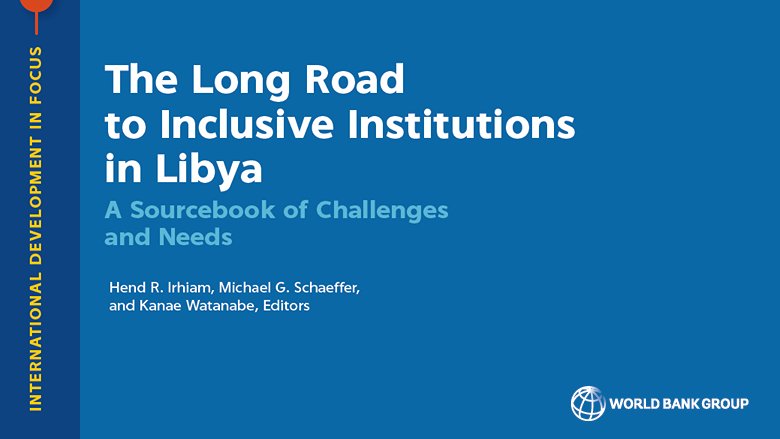Libya, an oil-rich country strategically situated at the crossroads of Africa, the Middle East, and Europe, possesses abundant yet unrealized potential. The conflict in Libya has not only resulted in a significant loss of development gains for its citizens but has also directly affected the well-being of neighboring countries, the Sahel region, and Europe. After an inconclusive transitional phase, Libya remains trapped in a political deadlock. The institutional legacy of the nation's complex history, combined with a decade of instability, has led to development indicators and institutional capacity non aligning with Libya's middle-income status. Reconciliation and political stability are essential for Libya's sustainable socio-economic future. Economic discussions can serve as a valuable complement to the political process, aiding Libya's progress toward peace and a political settlement over time.
Libya stands to profit from a reconstruction strategy and a vision that bring the country together. Investment decisions will have to be based on the analysis of alternative short- medium- and long-term interventions and the sequencing of related reforms, all while considering realities on the ground. A stable Libya will carry substantive positive spill-over effects for neighboring countries and beyond. If sustainable peace and stability are to take hold, Libya’s partners must stay the course, sustain engagement, and support Libya’s efforts to rebuild equitably and inclusively.
The Long Road to Inclusive Institutions in Libya: A Sourcebook of Challenges and Needs is a rich compilation of analytical work on Libya’s sector dynamics and reform choices. The content was developed in partnership with over fifty contributors from nine institutions and co-edited by Hend Irhiam, Michael Schaeffer and Kanae Watanabe. The book’s twenty-one chapters address institutional transformation, reflect on the conflict’s impact on the economy, and outline the consequences of the conflict on people and services. The book demonstrates that even in challenging circumstances, one can contribute to the development of a near- and medium-term vision for a political, economic, and socially inclusive Libya while acknowledging the need to adapt as the circumstances evolve. Utilizing innovative analytical techniques (phone surveys, nighttime data), the authors make a unique contribution to the discussion on Libya’s medium- to long-term challenges.
The objective of this sourcebook is to provide information and reflection for debates on Libya for the government, civil society, academia, and international partners. The twenty-one chapters are organized in five parts: I “State Institutions: From Legacy to Reform”; II “Tracking the Economy during the Conflict”; III “The Impact of the Conflict on People”; IV, “Services during Conflict”; and part V “Toward New Institutions.” Readers may choose to go directly to a specific subject of interest.
Developing a shared medium- to long-term vision for a politically, economically, and socially inclusive nation is vital to Libya's sustainable future. This sourcebook contributes to this goal, serving as a small steppingstone to help Libya advance towards realizing its full potential.
